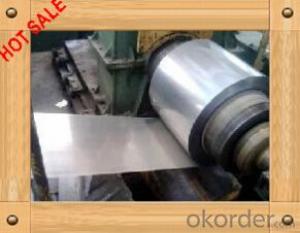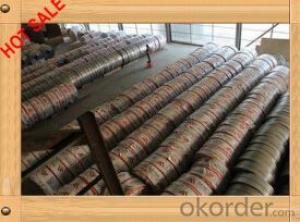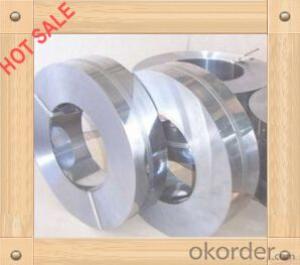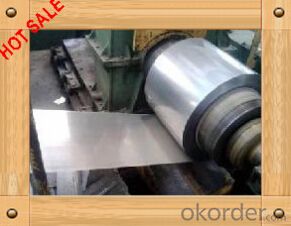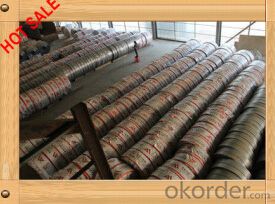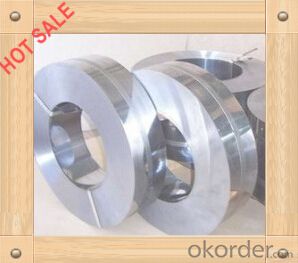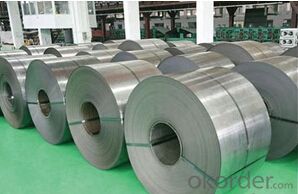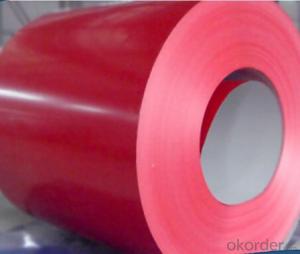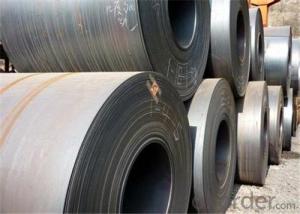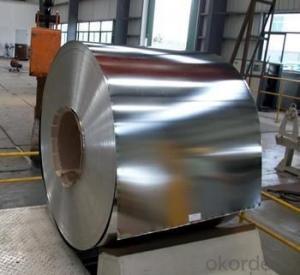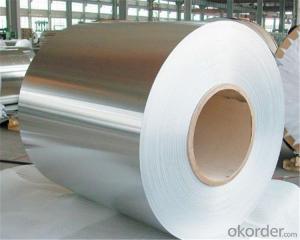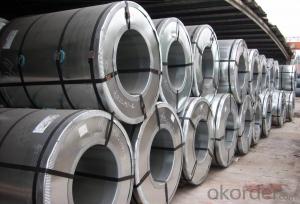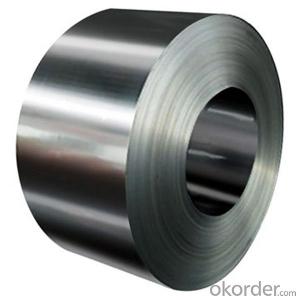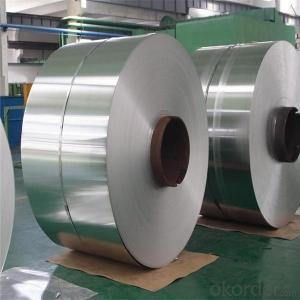201/202/301/304 Grade Stainle Steel Strip /Coil with 2b
- Loading Port:
- Shanghai
- Payment Terms:
- TT OR LC
- Min Order Qty:
- 25 m.t.
- Supply Capability:
- 10000 m.t./month
OKorder Service Pledge
OKorder Financial Service
You Might Also Like
Basic Info.
Model NO.:201/202/301/304
Surface Treatment:2b, Ba, Hairline, No.4, 8k, Mirror Finish etc.
Certification:ISO, SGS, BV
Technique:Cold Rolled
Standard:ASTM, JIS, GB, AISI, DIN, BS
Application:Pipe/Tube Making, Building , Kitchen Sinks/C
Edge:Mill / Slit Edge
Stock:Stock
Steel Grade:201, 202, 301, 302, 304, 304L, 316,316L
Grade:201, 202, 301, 302, 304, 304L, 316,316L
Width:20mm-1250 Mm
Thickness:0.16-3.0mm
Surface:2b, Ba, Hairline, No.4, 8k, Mirror Finish etc.
Quantity:as Request
Delivery Time:1-14 Days
Payment Term:FOB/CIF/CFR/EXW
Export Markets:Global
Additional Info.
Trademark:JH
Packing:Woven, Wooden Box
Standard:prime
HS Code:72209000
Production Capacity:800000 Tons/Year
Product Description
3201/202/301/304 GRADE Stainles Steel Strip /coil with 2B/BA surface
stainless steel strip
stainless stee coil
steel coil
stee strip
| Material GRADE | 201, 202, 301, 304, 304L, 316, 316L |
| Standard | ASME, ASTM, EN, BS, GB, DIN, JIS, etc |
| Technique | Hot rolled / cold rolled |
| Raw material source | JHSCO or as your request |
| Width | 10mm-1250 mm |
| Thickness | 0.16mm-3.0mm |
| Quantity | as your request |
| Surface | 2B, BA, 8K, No. 4 No.1,8K, Mirror finish etc. |
| Packaging | Standard export sea-worthy packing |
| Delivery time | 1-15days |
| Supply ability | S.S HR COIL= 1000 000 TONS/ year ,S.S CR COIL= 800 000 TONS/ year,s.s pipe=200 000 TONS/ year |
| Payment terms | L/C, T/T |
| Application range | Pipe/tube making,building material,kitchen sinks/cutlery,baths,elevators,automotive application,industrial application,hardware-tools etc. |
- Q: How are steel coils used in the manufacturing of shipping containers?
- Steel coils are used in the manufacturing of shipping containers to provide strength, durability, and structural integrity. These coils are processed and shaped into the necessary components, such as walls, floors, and roofs, which are then assembled to create a sturdy container. The steel coils also allow for easy transportation and stacking of the containers, ensuring safe and efficient shipping of goods worldwide.
- Q: I am in the US and looking for a price on wide flange steel. I need a price of one W10x30 and 20 feet long.
- The price of steel is increasing daily, so an exact answer is rough. A W10x30 is a fairly common shape and shouldn't be too hard to find. For a very rough ballpark number, say $700/ton (installed price), the piece you require should be in the range of about $250.00 or less as I assume you'll be doing the installing. Please don't take this as the gospel, however. Price varies on location, stock, and availability. Open the phone book and contact your local steel supplier. Because the piece you require is fairly short, you might get lucky and find someone who has a waste piece that length that they will give you a good deal on. --------------------------------------... I just checked the AISC web site to verify the number I quoted above and they posted an article stating that the average mill price had just increased to over $1000/ton in May. The best advice I can provide at this point is to buy the W10 now and don't wait any longer.
- Q: What are the environmental considerations of using steel coils?
- There are several environmental considerations associated with using steel coils. Firstly, the production of steel coils involves a significant amount of energy and resources. Steel production is a carbon-intensive process, contributing to greenhouse gas emissions, particularly from the use of fossil fuels in the manufacturing process. The extraction and processing of iron ore to produce steel coils also require extensive mining activities, which can lead to habitat destruction and soil erosion. Additionally, the transportation of steel coils can have environmental impacts. Steel coils are generally heavy and bulky, requiring large vehicles for transportation. This can result in increased carbon emissions and air pollution due to the use of fossil fuel-powered transportation methods. Furthermore, the disposal or recycling of steel coils can pose environmental challenges. If steel coils are not properly managed after use, they can end up in landfills or incinerators, contributing to waste generation and potential pollution. However, steel is a highly recyclable material, and by implementing effective recycling practices, the environmental impact of steel coil disposal can be minimized. Lastly, the use of steel coils in construction and manufacturing industries can have indirect environmental impacts. Steel coils are commonly used in the construction of buildings and infrastructure, which can result in deforestation and habitat loss due to land clearing. Moreover, the manufacturing processes that utilize steel coils may generate waste, pollutants, and emissions that can harm ecosystems and human health if not properly regulated and managed. To mitigate the environmental considerations associated with using steel coils, various measures can be taken. These include implementing energy-efficient technologies and practices in steel production, promoting sustainable mining practices, optimizing transportation logistics to reduce emissions, encouraging responsible disposal and recycling of steel coils, and promoting the use of alternative materials or steel products with a lower environmental footprint, such as recycled steel or steel with a higher proportion of recycled content.
- Q: How do steel coils contribute to energy efficiency in transportation?
- Steel coils are essential in energy-efficient transportation due to their lightweight yet strong nature. The use of steel coils in vehicles, such as cars and trucks, reduces the overall weight of the vehicle, enhancing fuel efficiency and reducing carbon emissions. Additionally, steel coils are often used in rail transportation, where their durability and strength contribute to the energy efficiency of trains by allowing for higher speeds and improved load carrying capacity.
- Q: I want to know the special characters or the advantages of the corton steel. In what cases it is recommended to use?Thank you.
- *It is Corten steel.Grade A B. *Weathering steel, best-known under the trademark COR-TEN steel, is a group of steel alloys which were developed to obviate the need for painting, and form a stable rust-like appearance if exposed to the weather for several years. United States Steel Corporation (USS) holds the registered trademark on the name COR-TEN. Although USS sold its discrete plate business to International Steel Group (now Arcelor-Mittal) in 2003, it still sells COR-TEN branded material in strip-mill plate and sheet forms. In some areas it may be known without the hyphen as Corten steel. The original COR-TEN received the standard designation A242 (COR-TEN A) from the ASTM International standards group. Newer ASTM grades are A588 (COR-TEN B) and A606 for thin sheet. All alloys are in common production and use. It is a weather-resistant steel which is used in containers and hot flue gas line. The American Corten A Steel has a composition of C, 0.12; Si, 0.5; Cu, 0.5; Cr, 0.8; P, 0.1 and Mn, 0.5%. Although the tensile strength is less than 494 MPa the yield is in the region of 371 MPa. The combination of copper and phosphorus also increases the resistance to atmospheric corrosion which is important when thinner plates are used. The original steel A suffers a decrease in yield strength and notch ductility in thickness over 25 mm, to overcome which Corten B was developed-C 0.14; P 0.04; Mn 1.1; Cr 0.5; Cu 0.4; V 0.1; Bol Al 0.02. *COR-TEN A applies to plates up to 12.5mm in thickness, COR-TEN B applies to plates up to 50mm in thickness. *It has been used in bridge and other large structural applications such as the New River Gorge Bridge, the newer span of the Newburgh-Beacon Bridge, and the creation of the Australian Centre for Contemporary Art (ACCA). It is very widely used in marine transportation, in the construction of shipping containers.
- Q: Which movie is better and why?I say Man of Steel!
- Captain America: The First Avenger
- Q: Can anyone tell me what that means. I have seen it on knife blades an such. I am assuming it's a formula for the strength of the metal. who does that scale work, and please keep it simple.
- The number just indicates which class of steel alloy it belongs. Yours happens to be a 400 series and happens to have no Nickel in it (440 Steel) and a higher amount of carbon (Nickel is very common in steel) When I say alloy, I'm referring to the different chemical formulas and processing of steel which vary for different uses like industrial use, medical use or decorative use. Think of the different alloys like the types of soft drinks out there. Coke, Pepsi and Dr. Pepper. They all have very similar chemical formulas; yet differ with their secret ingredients which is apparent in the taste.
- Q: How are steel coils used in the production of roofing panels?
- Steel coils are an essential component in the production of roofing panels. These coils, typically made of galvanized or coated steel, serve as the base material for manufacturing durable and high-quality roofing panels. Firstly, the steel coils are processed through a series of machines in a production facility. These machines flatten, clean, and shape the coils into the desired dimensions and profiles for the roofing panels. The process ensures that the steel coils are uniform in thickness and free from any impurities or imperfections that could compromise the integrity of the final product. Once the steel coils are prepared, they are then fed into a roll forming machine. This machine gradually bends and shapes the steel coils into the specific design and size required for the roofing panels. The roll forming process provides the panels with their distinctive corrugated or standing seam profiles, which enhance their strength and ability to withstand various weather conditions. After the roll forming process, the steel coils are cut into individual roofing panels of the desired length. These panels are then further processed to add additional features, such as coatings or finishes, for improved protection against corrosion and aesthetic appeal. The steel coils are often coated with protective layers, such as zinc or paint, to enhance their resistance to rust, UV rays, and other environmental factors. Finally, the roofing panels are packaged and shipped to construction sites or distributors for installation. The use of steel coils in the production of roofing panels ensures that the final product is strong, durable, and long-lasting. Steel is renowned for its high tensile strength, which makes the roofing panels capable of withstanding heavy loads, strong winds, and other external forces. In summary, steel coils play a crucial role in the production of roofing panels. They are transformed into the desired dimensions and profiles through a series of manufacturing processes, ensuring uniformity and quality. The resulting roofing panels are not only aesthetically pleasing but also highly durable, providing superior protection and longevity for buildings.
- Q: What is the role of steel coils in the production of conveyors?
- Steel coils play a crucial role in the production of conveyors as they are used to create the framework or structure of the conveyor belts. The coils are formed into a continuous loop, which provides strength, durability, and flexibility to the conveyor belts. Additionally, the steel coils ensure smooth movement and support heavy loads, making them essential components in conveyor manufacturing.
- Q: What are the common applications of galvalume steel coils?
- Galvalume steel coils have a wide range of applications due to their unique properties and durability. Some common applications of galvalume steel coils include: 1. Roofing: Galvalume steel coils are commonly used in the construction industry for roofing applications. The coating on these coils provides excellent corrosion resistance, making them ideal for protecting roofs from harsh weather conditions and extending their lifespan. 2. Siding: Galvalume steel coils are also used for siding applications in residential, commercial, and industrial buildings. The durability of these coils makes them suitable for withstanding external elements, such as rain, wind, and sunlight, without corroding or deteriorating. 3. Gutters and Downspouts: Galvalume steel coils are extensively used in gutter and downspout systems. The corrosion-resistant properties of these coils ensure that gutters and downspouts remain functional and aesthetically pleasing for a longer period, saving homeowners from frequent replacements or repairs. 4. Appliances: Many household appliances, such as refrigerators, ovens, and washing machines, utilize galvalume steel coils. The corrosion resistance and high heat reflectivity of these coils make them an excellent choice for manufacturing durable and energy-efficient appliances. 5. Automotive Industry: Galvalume steel coils find applications in the automotive industry for manufacturing parts like body panels, chassis, and exhaust systems. The lightweight nature and corrosion resistance of these coils contribute to fuel efficiency and the overall durability of vehicles. 6. HVAC Systems: Heating, ventilation, and air conditioning (HVAC) systems often use galvalume steel coils for components like ductwork and air handling units. The coils' ability to withstand high temperatures and resist corrosion ensures the longevity and efficiency of HVAC systems. 7. Agricultural Equipment: Galvalume steel coils are used in the manufacturing of agricultural equipment, such as grain storage bins, barns, and sheds. These coils provide excellent protection against rust, ensuring that the equipment remains durable and reliable in agricultural environments. Overall, galvalume steel coils have a wide range of applications across various industries due to their corrosion resistance, durability, and ability to withstand harsh environmental conditions.
Send your message to us
201/202/301/304 Grade Stainle Steel Strip /Coil with 2b
- Loading Port:
- Shanghai
- Payment Terms:
- TT OR LC
- Min Order Qty:
- 25 m.t.
- Supply Capability:
- 10000 m.t./month
OKorder Service Pledge
OKorder Financial Service
Similar products
Hot products
Hot Searches
Related keywords
